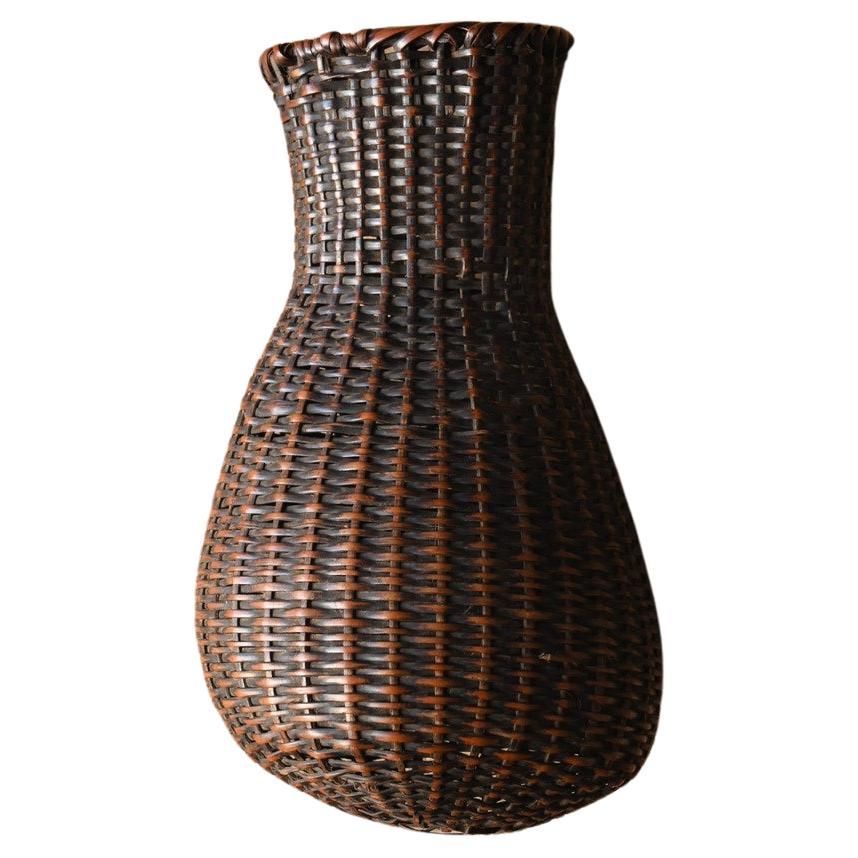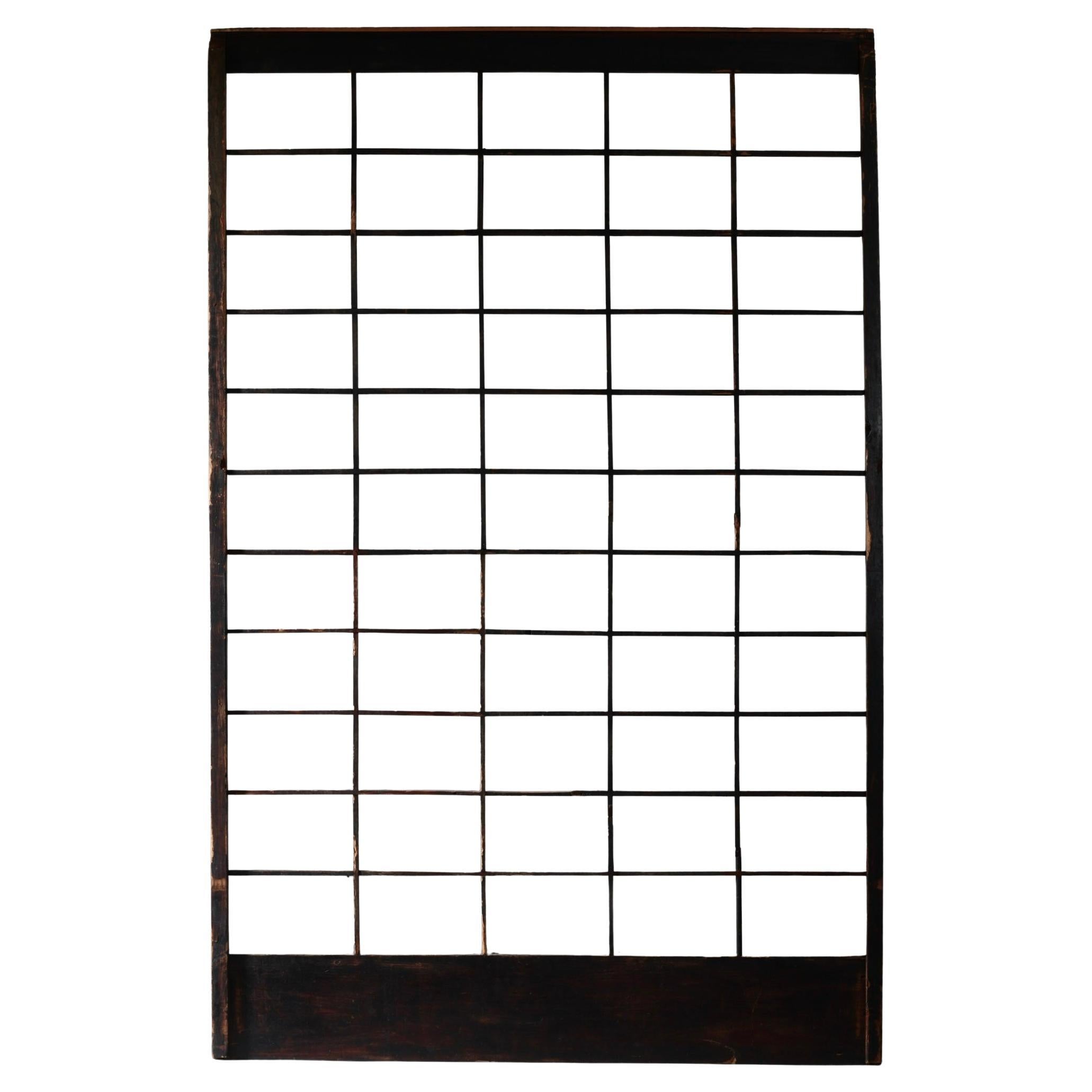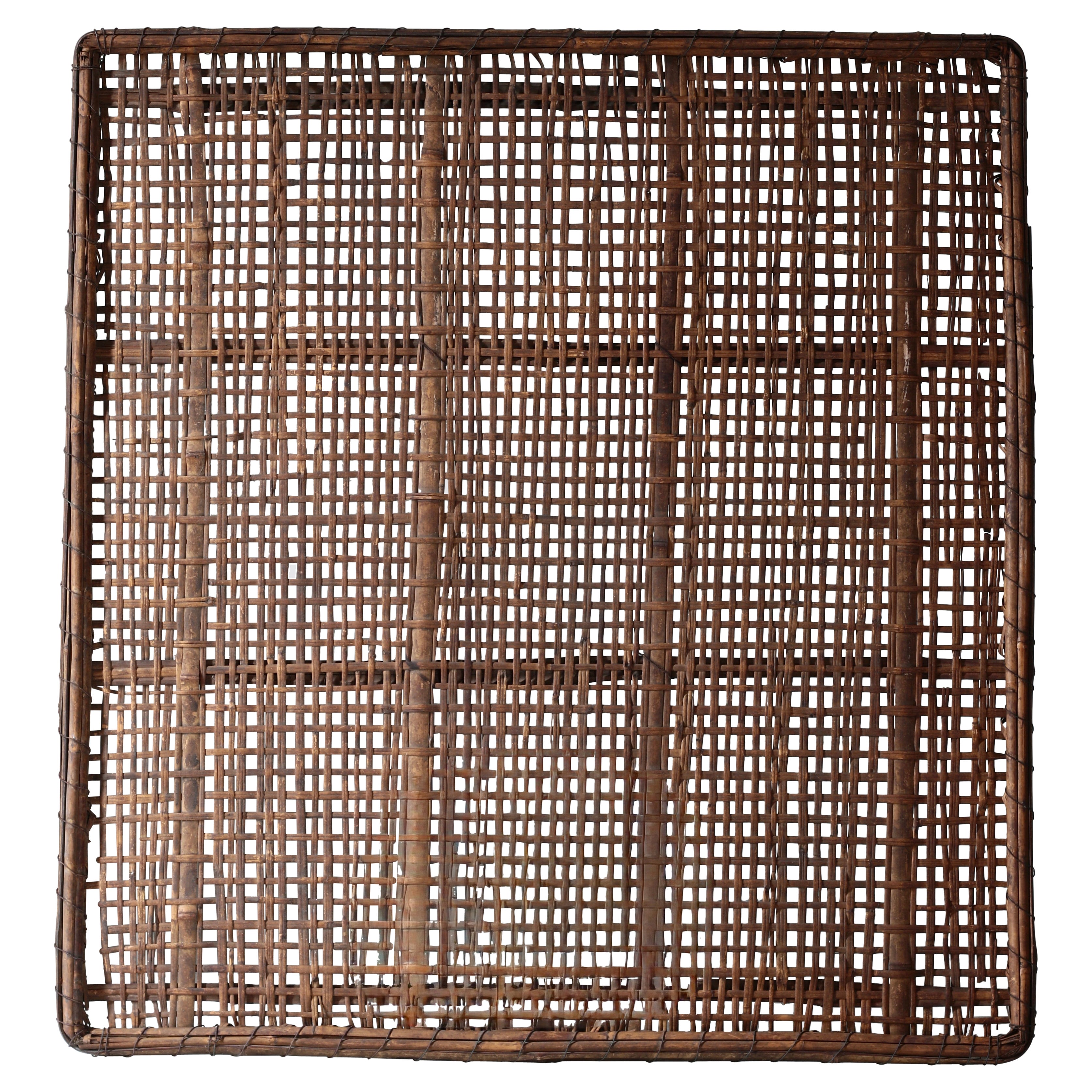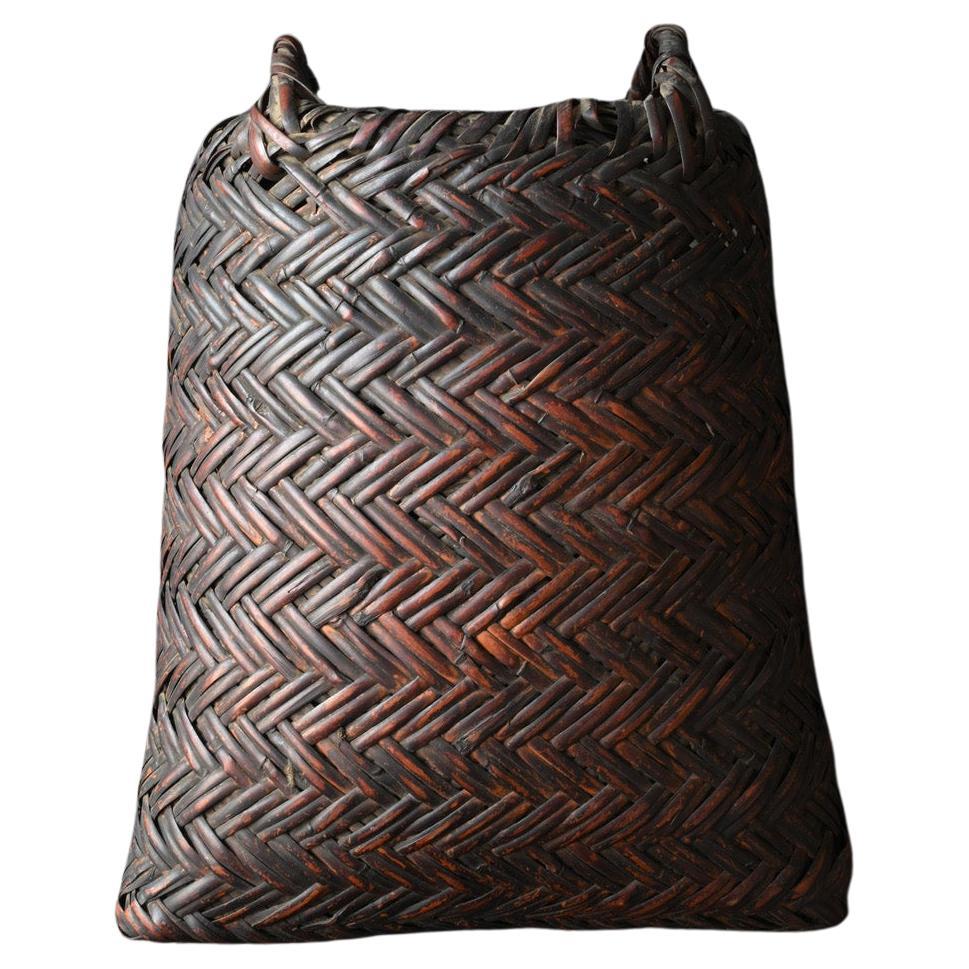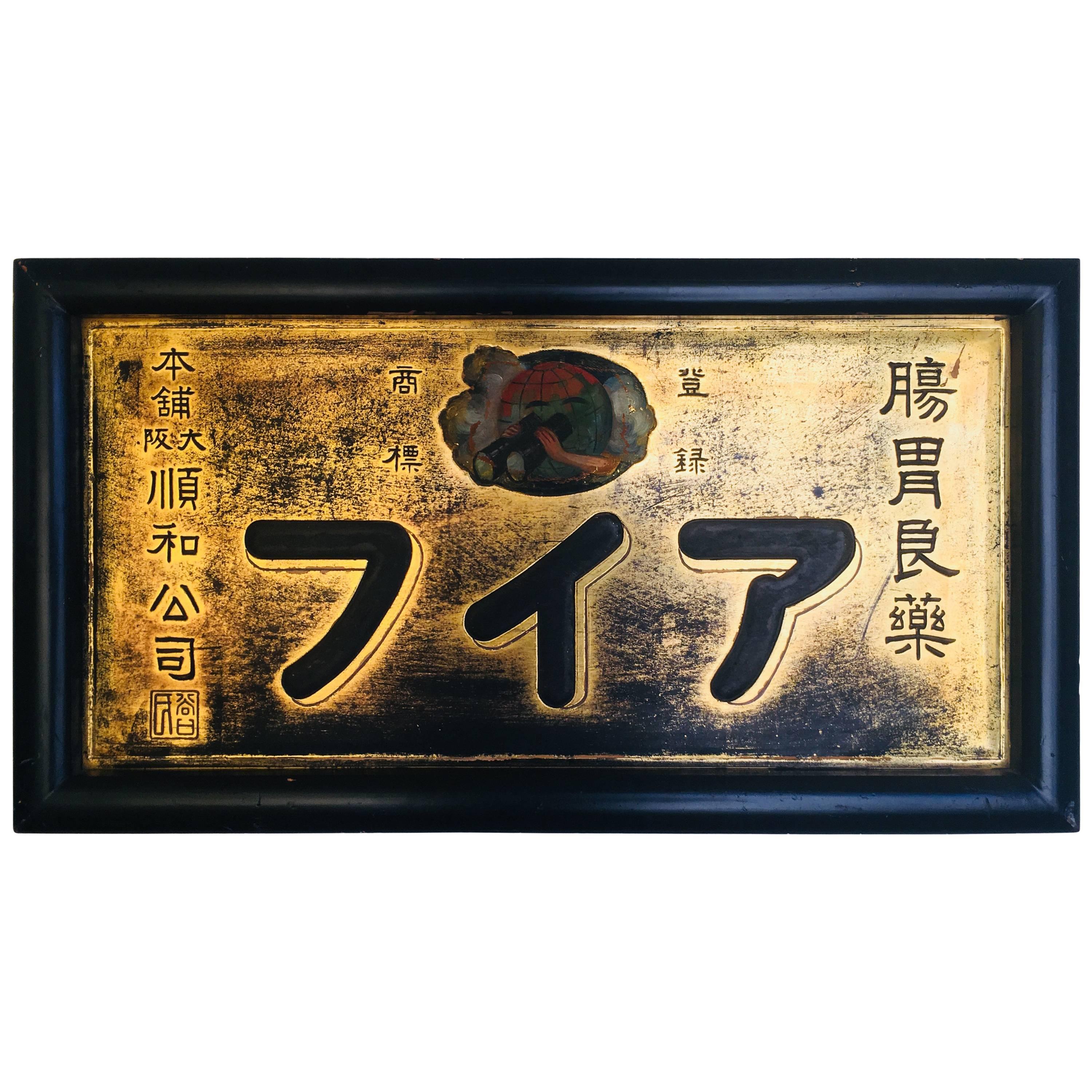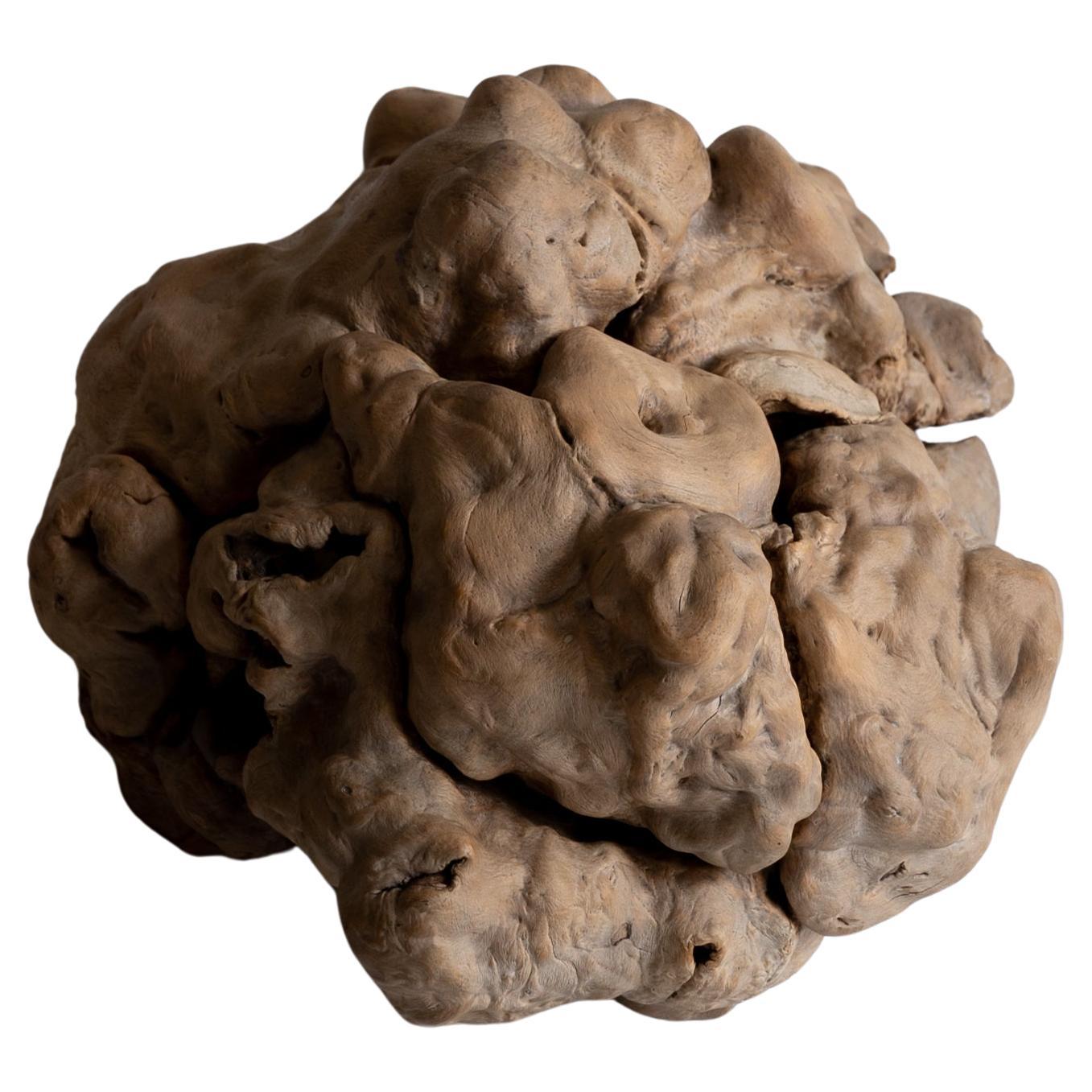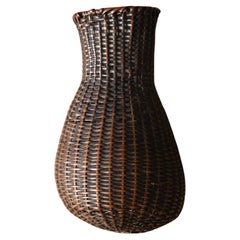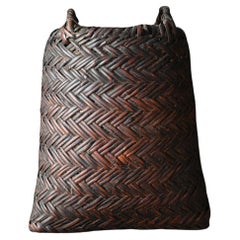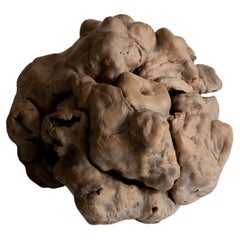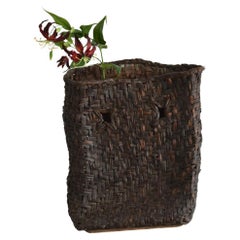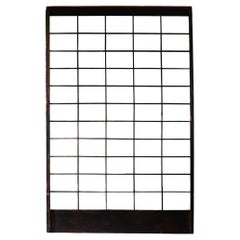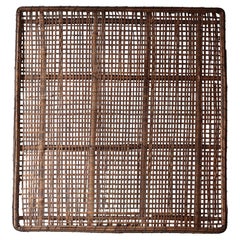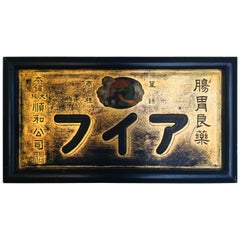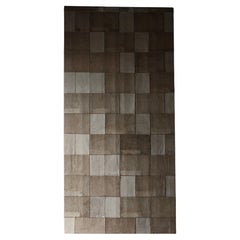Items Similar to Japanese antique persimmon dyed wrapping paper/1868-1912/wall hanging object
Want more images or videos?
Request additional images or videos from the seller
1 of 19
Japanese antique persimmon dyed wrapping paper/1868-1912/wall hanging object
$800
£594.04
€697.67
CA$1,113.02
A$1,246.14
CHF 653.39
MX$15,396.86
NOK 8,233.16
SEK 7,771.77
DKK 5,205.49
Shipping
Retrieving quote...The 1stDibs Promise:
Authenticity Guarantee,
Money-Back Guarantee,
24-Hour Cancellation
About the Item
This item is believed to be an old wrapping cloth made in Japan around the Meiji period (late 19th to early 20th century). Originally used as a practical tool for wrapping and transporting items such as paper and cloth, it is now a rare artifact that is seldom seen today.
The material used is old paper, likely repurposed from documents dating back to the late Edo to early Meiji period. The calligraphy, written in sumi ink, is still clearly visible and offers glimpses into the daily lives of people from that era. Multiple layers of kakishibu (persimmon tannin) have been applied to the surface, giving it a rich, lustrous brown color and increasing its durability. When the persimmon tannin completely hardens, the paper takes on a firm texture and turns into a strong material that is not easily torn.
In an age when paper was a precious commodity, nothing was wasted. Used paper was repurposed in many ways: as underlayers for folding screens, reinforcement for household items, or even pasted onto bamboo baskets by farmers to create containers. This wrapping cloth was created in that spirit of careful reuse and craftsmanship.
While it is not uncommon to find large sheets of kakishibu-coated paper used as wrapping material, this particular piece is quite rare due to its unique form—it has been folded from four sides into the shape of a pouch or case. From a mingei (folk craft) or folk art perspective, this structural ingenuity enhances its value and significance. The piece is also in good condition. The creases, faded text, and subtle discoloration are not flaws but rather a poetic testament to the passage of time, elevated here into aesthetic beauty.
Today, this item transcends its original practical use and serves as a striking decorative object. A thin wire has been threaded through the upper edge, allowing it to be hung on the wall as a piece of art. The organic texture and color, shaped by natural aging, blend gently into modern interiors while imparting a quiet yet powerful presence.
It complements both traditional Japanese and antique-inspired spaces, and can also serve as a compelling accent piece in a modern setting. That this humble paper item now radiates such depth and character is a testament to the enduring power of material objects shaped by time.
Such pieces are becoming increasingly difficult to find in today's world—a truly one-of-a-kind discovery. We hope it resonates with you.
Weight: 0.95kg
[We are a specialized team dealing in antiques and vintage items, comprised of stores based on three distinct brands. While focusing on Japanese items, we also offer a carefully curated selection of attractive goods from around the world—each evoking the culture and history of its country of origin.
Unlike the traditional Japanese antique furniture and art that have been appreciated overseas until now, we shine a light on the tools and furniture that were used for many years in ordinary Japanese homes and farmhouses. These objects have gained a unique charm over time, their beauty deepened by the history accumulated through daily life. In today’s world, however, many of these precious items are discarded during home demolitions. We are committed to reassessing their value and passing them on to future generations.
Drawing from our extensive experience—having seen tens of thousands of items through direct purchases, markets, and auction houses—we carefully select and present only the most captivating pieces. This is something made possible only through the years of knowledge and expertise we have cultivated.
Rather than focusing on the widely known facets of Japanese art and culture, we highlight the subtle beauty born from the everyday life of common people. It is this rediscovered beauty, steeped in history, that we strive to share with the world.]
- Dimensions:Height: 16.15 in (41 cm)Width: 24.22 in (61.5 cm)Depth: 0.79 in (2 cm)
- Style:Meiji (Of the Period)
- Materials and Techniques:
- Place of Origin:
- Period:
- Date of Manufacture:1868-1912
- Condition:
- Seller Location:Sammu-shi, JP
- Reference Number:1stDibs: LU5487245630742
About the Seller
5.0
Platinum Seller
Premium sellers with a 4.7+ rating and 24-hour response times
Established in 2015
1stDibs seller since 2020
1,584 sales on 1stDibs
Typical response time: 4 hours
- ShippingRetrieving quote...Shipping from: senzoku, Japan
- Return Policy
Authenticity Guarantee
In the unlikely event there’s an issue with an item’s authenticity, contact us within 1 year for a full refund. DetailsMoney-Back Guarantee
If your item is not as described, is damaged in transit, or does not arrive, contact us within 7 days for a full refund. Details24-Hour Cancellation
You have a 24-hour grace period in which to reconsider your purchase, with no questions asked.Vetted Professional Sellers
Our world-class sellers must adhere to strict standards for service and quality, maintaining the integrity of our listings.Price-Match Guarantee
If you find that a seller listed the same item for a lower price elsewhere, we’ll match it.Trusted Global Delivery
Our best-in-class carrier network provides specialized shipping options worldwide, including custom delivery.More From This Seller
View AllJapanese antique wall hanging bamboo vase/1868-1920/Wabisabi object
Located in Sammu-shi, Chiba
This is an old bamboo vase made from the Meiji period to the Taisho period (1868-1920).
It is made in the shape of a fish cage using thin bamboo strips.
In Japan, fish caught in rive...
Category
Antique 19th Century Japanese Meiji Decorative Art
Materials
Bamboo
Japanese antique bamboo woven basket/wall hanging vase/1868-1920/Mingei
Located in Sammu-shi, Chiba
This is a woven bamboo basket made in Japan from the Meiji to Taisho periods (1868-1920).
I don't know if the baskets actually used by farmers were repurposed as flower vases, or if ...
Category
Early 20th Century Japanese Meiji Decorative Art
Materials
Bamboo
Japanese Antique Wall Hanging Tree Bump 1860s-1900s / Object Mingei Wabi Sabi
Located in Sammu-shi, Chiba
This is a very old Japanese tree mass.
It is designed to be hung on a wall.
It has a strong presence and is very beautiful.
It could be an accent in a modern space.
This is a very...
Category
Antique 19th Century Japanese Taisho Decorative Art
Materials
Wood
Japanese antique Large basket woven with grape vines/1868-1920/Vase on the wall
Located in Sammu-shi, Chiba
This is an old Japanese basket made from the Meiji period to the Taisho period (1868-1920).
The material is made of wild grape vines, and it is tho...
Category
Antique Late 19th Century Japanese Meiji Decorative Art
Materials
Other
Old Japanese root tree object/Wall ornament/Wall decoration
Located in Sammu-shi, Chiba
This is an old Japanese wooden object.
It is carved from the root of a tree.
I believe it was made from the late Showa period to the early Heisei period.
The wood was originally a li...
Category
Mid-20th Century Japanese Showa Decorative Art
Materials
Wood
Antique Japanese woven wall hanging basket/20th century/Wabi-sabi vase
Located in Sammu-shi, Chiba
This is a rustic woven basket made of walnut bark, made in Japan around the 20th century.
In Japan, tools made of natural materials have been used since ancient times as baskets for ...
Category
20th Century Japanese Taisho Decorative Art
Materials
Wood
You May Also Like
Japanese Antique Lattice Door / Wall Decoration / 1868-1912s / Wabi-Sabi
Located in Iwate-gun Shizukuishi-cho, Iwate Prefecture
This is a wall decoration made from an old Japanese door.
It is thought to date from the Edo to Meiji period.
It has a simple design and features a lattice frame made at regular in...
Category
Antique Late 19th Century Japanese Meiji Decorative Art
Materials
Cedar, Wood, Pine
Japanese Antique Bamboo Panel / Wall Decoration / 1868-1912s / Wabi-Sabi
Located in Iwate-gun Shizukuishi-cho, Iwate Prefecture
This is an old Japanese bamboo wall decoration.
It is believed to have been used as a farm tool around the Meiji period.
Perhaps it was used as a tool to transport crops.
The latt...
Category
Antique Late 19th Century Japanese Meiji Decorative Art
Materials
Bamboo
Kanban, Japanese Shop Sign, Meiji Period, 1868-1912
Located in Camden, ME
This 19th century Japanese Pharmacy sign advertises a popular stomach medicine, Aifu from the Juwa Co. in Osaka. The hand-painted registered trademark of the world looking through bi...
Category
Antique 19th Century Japanese Meiji Lacquer
Materials
Lacquer
Japanese Antique Old Japanese Paper Art / Wall Decoration / Wabi-sabi【Brown】
Located in Iwate-gun Shizukuishi-cho, Iwate Prefecture
This is an original wall decoration made by combining old Japanese things.
I used the covers of old books from the Edo period to the Meiji period and pasted them randomly.
I used ...
Category
Antique 19th Century Japanese Meiji Decorative Art
Materials
Wood, Cedar, Paper
Japanese Antique Old Japanese Paper Art / Wall Decoration / Wabi-sabi【Blue】
Located in Iwate-gun Shizukuishi-cho, Iwate Prefecture
This is an original wall decoration made by combining the good old things of Japan.
Covers of old books from the Edo period to the Meiji period were randomly pasted together.
By ov...
Category
Antique 19th Century Japanese Meiji Decorative Art
Materials
Wood, Cedar, Paper
Japanese Antique Wall-Hanging Wooden Flower Vessel 1900s-1940s / Wabi Sabi
Located in Chōsei District Nagara, JP
This is an old wall-mounted wooden vase made in Japan.
It was made in the early Showa period (1900s-1940s).
It looks like a work of sculpture that makes the most of the natural wood....
Category
Mid-20th Century Japanese Showa Decorative Art
Materials
Cedar
